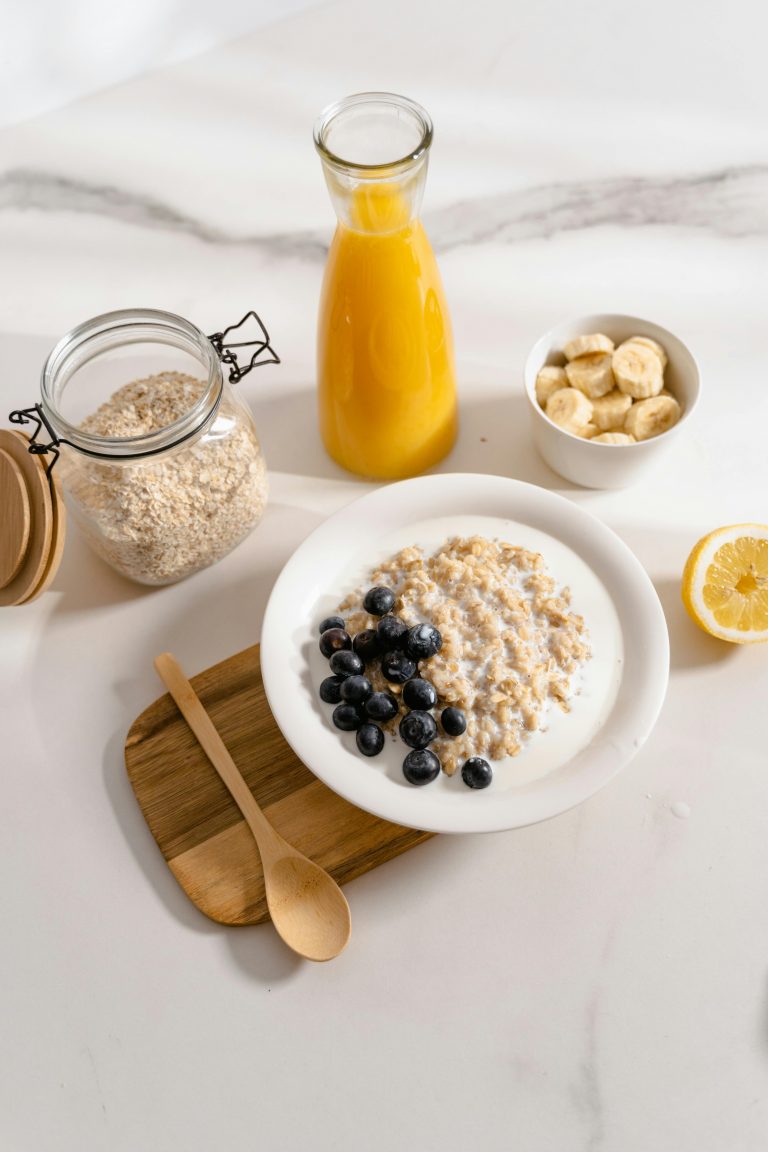There’s a reason oats have stood the test of time. From a cosy bowl of porridge on a chilly morning to crunchy flapjacks fresh from the oven, oats have become a breakfast staple across the world. But beyond being versatile and budget-friendly, they also pack a serious nutritional punch.
Try this: Baked oats recipe
What exactly are oats?
Oats are a whole grain that come in a few different forms depending on how much they’ve been processed. Whole oats (sometimes called jumbo oats) take the longest to cook, while rolled oats are slightly flattened for quicker preparation. Instant oats are the fastest-cooking option, giving you a smoother porridge.
All three are nutritious – it’s really just about how much time you have in the kitchen. Oats are also found as flour, ideal for baking, or as oat bran, which can be sprinkled into smoothies or cereals to boost fibre.
The nutritional benefits
Oats are naturally rich in fibre, protein, vitamins and minerals, making them one of the most balanced grains you can add to your diet. They’re especially known for a type of soluble fibre called beta-glucan, which plays a big role in heart health and blood sugar control.
A bowl of porridge made with milk offers slow-releasing energy, calcium, zinc and enough fibre to help you feel satisfied for hours.
Why add oats to your diet?
Here are just some of the ways oats can support your health:
- Heart health: The fibre in oats helps lower cholesterol, protecting against heart disease.
- Blood sugar balance: Oats release energy gradually, keeping sugar spikes in check.
- Digestive support: Their prebiotic fibres help feed healthy gut bacteria.
- Weight management: Oats help you feel full for longer, which may make it easier to manage your appetite.
- Protective compounds: Oats contain unique antioxidants called avenanthramides that may help reduce inflammation and support healthy blood pressure.
Gluten and oats
Naturally, oats don’t contain gluten. But because they’re often processed alongside wheat, rye or barley, cross-contamination is common. If you’re gluten intolerant or have coeliac disease, always look for certified gluten-free oats.
Making oats work for you
The beauty of oats is how easily they can be tailored to your taste. A classic bowl of porridge can be dressed up with seasonal fruit, nut butter or a drizzle of honey. Overnight oats are perfect for busy mornings, while oat flour can lighten up muffins or pancakes. Just remember: what you add matters. A spoonful of berries or cinnamon adds nutrients, while too much sugar can cancel out the benefits.
Yes – oats are very good for you. They’re affordable, adaptable, and loaded with nutrients that support long-term health. Whether you enjoy them warm, cold, baked, or blended, this humble grain deserves a regular spot in your kitchen.
ALSO SEE: 3 WAYS WITH INSTANT OATS

